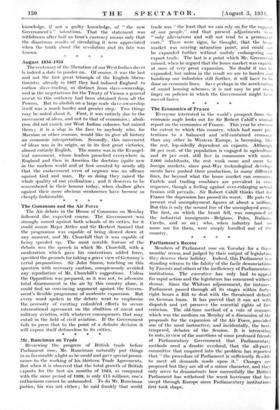August 1834-1934 The centenary of the liberation of Our West
Indian slaves is indeed a date to ponder on. Of course, it was the last and not the first great tritiniph of the English liberaa tionists ; already in 1807 they had induced England to outlaw slave-trading, as distinct from slave-ownership, and in the negotiations for the Treaty of Vienna a general assent to this outlawry had been obtained from all the Powers. But to abolish on a large scale slave-ownership itSelf was a much harder and greater step. Two things may be noted about it. First, it was -entirely due to the niovement of ideas, and not to that of economics ; aboli- tion did not enrich our West Indian colonies, but ruined them ; it is a slap in the face to anybody who, for Marxian or other reasons, would like to give all history an eeonomic interpretation. Secondly, this movement of ideas was in its origin, as in its first great victories, almost entirely English. The source was in the Evangel- ical movement, whose leaders preached everywhere in England and then in America the doctrine (quite neW in the modern world and at first scouted by nearly all) that the enslavement even of negroes was an offence against God and man. By so doing they raised the whole quality of our civilization ; and it deserves to be remembered in their honour today, when shallow gibes against their more obvious weaknesses have become so cheaply fashionable.






























 Previous page
Previous page